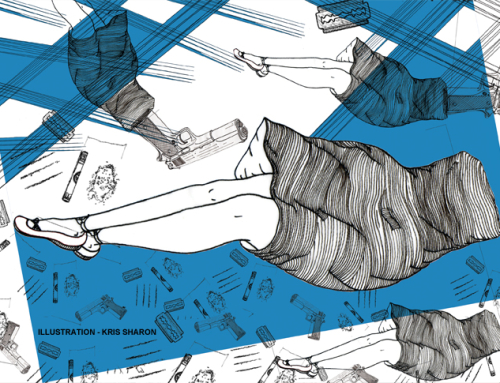The Story of the Story of an Anti-Coming of Age Story
“I did not like you even”. Those words, spoken from the teenage mouth too smart for its own good, resonated like nothing else. Paul was being broken-up with, and couldn’t even get the words out straight. Little did he know that the upcoming days would be a giant leap towards an unresolved maturity that resonated with me as much as when Holden Caulfield saw that scrawled four-letter word.
I was 20 years-old, living in Los Angeles with my well-known starlet girlfriend. Months earlier, I had somehow convinced a brilliant filmmaker to cast me in a movie called Brick. It was the most romantic experience I’ve ever enjoyed. All the hippy-dippy stuff you hear artists talk about, the feelings of collaboration, of feeling “at home,” that we were all playing the same song, those were obvious. To this day, I think the reason I keep making films is an attempt to get that same feeling back from that first go-around. Of course, at the time, no one knew what we had done. It hadn’t won an award at Sundance or been released by Universal’s Focus Features. I didn’t even know at the time it would be my big break. All the other kids in the flick had new acting gigs or media attention, but I was a good-old-fashioned nobody. I didn’t even have an agent. I was fixing people’s cars and making copies for spare change while my girlfriend would occasionally pass me scripts sent to her by a team of representatives.
Running Out of Angels is a coming-of-age story, set against the languid, Gothic tranquillity of Savannah, Georgia, during the boring, complacent time of the 90s between Grunge and the New Millennium. It reads like a bastard child of David Mamet and Bret Easton Ellis. The lead character, Paul, finds himself becoming something between Holden Caulfield and Hunter S. Thompson as great Greek and Biblical themes pit the sins of the father against the son and the notions of responsibility, love and preciousness. It’s an actor’s wet dream.
The gal had been sent the script for her interest in playing Amber, the cunning, brilliant, and naïve heroine of the story. It’s easily the best-written young woman I’ve ever read, blowing anything a Brontë sister could write out of the water. She passed the script on to me, and tossed my name into the hat for an audition. A few days later, I walked into a casting office and asked the scruffy young writer/director, Sebastian Taylor, if he was as big an Elvis Costello fan as I am. “I’ve seen 300 actors for this film and not one of them has made that connection,” he replied (“Running Out of Angels” is the title of an obscure Costello b-side, never referenced in the script, but apropos nonetheless). We did the break-up scene, my scene partner a middle-aged casting director with spectacles doing her best to be a bratty teenage girl. That great line sputtered forth with embarrassed indignity. He can’t even get a straight rebuttal, poor sod. “I did not like you even.” And Sebastian’s face lit up. “None of the other guys got that line right. They thought it was a typo,” he said. We ran outside and smoked a cigarette, talked about some music—Wilco and The Pixies—and about Los Angeles versus New York, the usual bonding exercises that pretentious artists with good intentions use to suss each other out.
Seb gave me a firm handshake, a keen eye and the assurance that we weren’t done yet. I got into my once-green-now-baby-shit-brown rusted-out Mustang convertible and puttered off. Daydreams bounced around in my head that maybe he wouldn’t cast one of the wooden pretty boys from the night-time soap operas. Little did I know that what was about to begin was a 5-year journey, a friendship that would become one of the strongest I’ve had, and one of the most tested. But the real juice in this story is how the story got told, how this was to become the most raw example of the trials and tribulations behind making an independent film.








